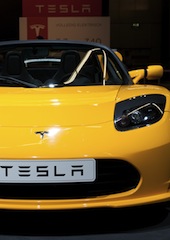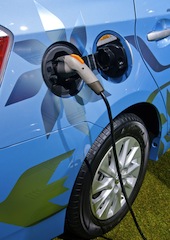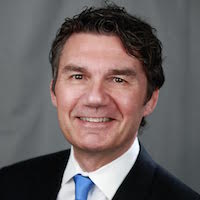Elon Musk: The Next Henry Ford?
Like Henry Ford, Elon Musk is not a tech genius or great inventor. But he is changing the future all the same.
September 29, 2013

In 1903, the Ford Motor Company was incorporated and, by 1908, the company rolled out its first commercial vehicle, the Model T. Henry Ford, its co-founder, built on the substantial research and development that had been undertaken elsewhere in the industry. Innovation was rampant ever since Karl Benz received the first patent for an automobile with an internal combustion engine in 1886.
But Ford’s real contribution to the global economy was not that of a technological guru. Instead, he developed a new way of manufacturing, the assembly line. That allowed for mass production and made many products — not just cars — much more affordable.
By 1910, approximately 12,000 Model Ts had been produced. The price for this car, which stood at $850 in 1909, steadily declined due to rising efficiencies. By the early 1920s, it had fallen to $260.
Fast forward to 2003, 100 years later, Tesla Motors was incorporated with the stated objective to produce electric vehicles (EVs) for mainstream consumers.
In 2004, then-33 year old Elon Musk, who had made his fortune with two internet companies, joined as Chairman. In 2008, he also became CEO and the company’s first car, the Tesla Roadster, was supplied to a select few early adopters.
In June 2012, Tesla began delivery of its so-called Model S sedan, not accidentally named in the memory of the first commercially viable car produced by the Ford Motor Company.
Revolutionizing an industry
Much like Henry Ford, Elon Musk built on the considerable technological knowledge accumulated by others in this space (and at their expense) over the years.
After all, there were several EVs already in production and some so-called hybrids combining the technologies of electric vehicles with those of the internal combustion engine.
In spite of the material technological progress made by Tesla in the development of its EVs, Elon Musk is unlikely to enter the auto history books as a peer of Karl Benz. He will be remembered, however, as a businessman standing shoulder-to-shoulder with Henry Ford.
Like Ford, Musk has revolutionized industry. In his case, he took on powerful and large incumbents in Detroit and abroad. These incumbents had known of the potential of EVs for years.
But their developmental efforts were little more than token efforts to tick a certain box – meeting their social governance goals by demonstrating environmental conscientiousness.
Apart from nursing their close ties to the natural supporters of the internal combustion engine, i.e., oil companies, these large incumbents also trumpeted the false truth that EVs would never be a viable alternative to traditional vehicles.
That was supposedly so because of their less than sporty performance and their lack of range.
To prove that underwhelming point, these firms “successfully” built underwhelming EVs and hybrids.
Proving them wrong
To his everlasting benefit, Musk had no capital invested in such thoughts or relationships. But he knew how creative destruction works in the modern business world.
He understood that all he needed to do was to prove the incumbents wrong and he would destroy, or permanently alter, their business model.
He knew that any incumbent in any industry today is only as strong as its greatest weakness. Online publications and information services had proven it all too well by starving traditional newspapers of critical advertising dollars, completely restructuring the news business as a result.
Thus, making an EV that worked far better than any such car produced by the incumbents would ultimately change the industry. Under Musk’s leadership, Tesla did just that.
It does not matter how many cars Musk will sell in 2013 or even if Tesla will prove commercially viable in the long term.
All that matters is that Musk proved the replicability and scalability of his business model. All incumbents in Detroit, Europe and Asia will either adjust or wither. Already, Tesla sells electric power trains to Daimler and Toyota.
True, the Model S with a base price of $62,000 (after a tax credit) is clearly a luxury car and a status symbol. Yes, Tesla has a certain “Apple appeal.” And no doubt, environmental enthusiasts with deep pockets make for eager buyers. But this is no DeLorean, the early 1980s project of a vain man who produced a subpar car that only appealed to those who shared his vanity.
Instead, Tesla has irreversibly changed the business model of the automobile industry. Prices for EVs will come down as they did for Henry Ford’s Model T, the first personal computer or 3D Printers.
A wave of innovation
What’s more, Musk’s proof that EVs are the cars of the future and the only cars with a future has already encouraged entrepreneurs around the world to double their efforts creating a wave of innovation, where resignation reigned before.
An Israeli high-tech company, Phinergy, has developed an aluminum-air as well as a zinc-air battery that does not require recharging for some 1,000 miles, dramatically extending range of EVs.
At that point, the aluminum or zinc component of the battery must be changed which can be accomplished via a simple and fast battery swap at a “gas” station.
In order to make the battery operable, it requires water (for oxidization). That, in turn, means that you would have to “fuel up” with water every 200 miles or so.
However, retrofitting today’s traditional gas stations to pump water in addition to or maybe one day instead of gasoline is a fairly simple transition. The battery is currently tested by Citroen.
These and other technological inventions will be the legacies of their creators. But Elon Musk will always be considered as the man who broke the mold of an industry incapable of or unwilling to change.
He revolutionized this sector and provided an incentive for creative thinkers to take on large incumbents in other industries who are wedded to long outdated status quos.
Takeaways
Elon Musk is unlikely to enter the auto history books as a peer of Karl Benz.
Like Ford, Musk has revolutionized industry by taking on powerful and large incumbents in Detroit and abroad.
Any incumbent in any industry today is only as strong as its greatness weakness.
Musk proved the replicability and scalability of his business model.
Tesla has a certain apple appeal. Environmental enthusiasts with deep pockets make for eager buyers.
Elon Musk will always be the man who broke the mold of an industry incapable of or unwilling to change.
Read previous

U.S. Ready for Clean Cars Yet?
September 29, 2013
